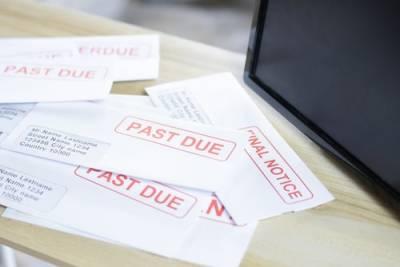Understanding Your Rights Regarding Creditor Harassment and Bankruptcy
 If you have encountered financial difficulties that have affected your ability to repay your debts, it is likely that you are experiencing regular calls from creditors. Dealing with these calls or other forms of communication can be very stressful, especially if you are already struggling to cover your regular living expenses. Fortunately, you have protections against creditor harassment under the laws of the United States. By understanding your rights and your options for addressing your debts, you can take the correct steps to stop harassment from creditors as you determine how to return to financial stability.
If you have encountered financial difficulties that have affected your ability to repay your debts, it is likely that you are experiencing regular calls from creditors. Dealing with these calls or other forms of communication can be very stressful, especially if you are already struggling to cover your regular living expenses. Fortunately, you have protections against creditor harassment under the laws of the United States. By understanding your rights and your options for addressing your debts, you can take the correct steps to stop harassment from creditors as you determine how to return to financial stability.
The Fair Debt Collection Practices Act
Unfortunately, creditors have a reputation for taking inappropriate actions as they attempt to collect debts, and they can often engage in harassing behavior. To address this issue, the federal government has put the Fair Debt Collection Practices Act (FDCPA) in place, and this law details how creditors can contact debtors and attempt to collect debts, as well as the actions that debtors can take to address harassment.
Provisions of the FDCPA include:
-
Restrictions on creditor communications - Creditors can only call or contact debtors at reasonable times, which are generally defined as between 8:00 a.m. and 9:00 p.m. Creditors are not allowed to repeatedly call a person in an attempt to annoy or otherwise harass them, and they cannot attempt to contact a person through third parties, such as family members or an employer. While creditors may call a person at work, they must stop doing so if requested. In fact, a debtor can ask that a creditor cease all contact with them, and creditors are required to honor these requests.
-
Illegal behavior by creditors - Abusive or threatening practices are not allowed by creditors. These actions include threatening to physically harm a debtor or their family members, claiming that a person will be arrested if they do not pay debts, using profane or obscene language, lying or misstating the amount owed, threatening to take a debtor’s property when a creditor does not have the right to do so, attempting to collect more than what is actually owed, or representing themselves as members of law enforcement or other authorities.
-
Validation of debts - A debtor can ask a creditor to provide a validation letter verifying the debt and providing information about what is owed. This information may include the name of the creditor, the name of the original creditor if a debt has been purchased by the current creditor, the total amount owed, and details about how a debt may be disputed. A validation letter must usually be sent within five days after a creditor contacts a debtor.
-
Penalties for violations - If a creditor engages in harassment or violates the FDCPA, a debtor may file a complaint with the Consumer Financial Protection Bureau (CFPB). A debtor may also pursue a lawsuit against a creditor seeking monetary damages for harassing behavior, and a creditor may be required to pay all legal fees associated with the case.
Contact Our New Braunfels Creditor Harassment Defense Lawyer
Bankruptcy is one of the best ways to deal with creditor harassment. After filing for bankruptcy, creditors will be prohibited from contacting you or taking any actions to collect debts, including pursuing a legal judgment, garnishing your wages, repossessing your property, or proceeding with a foreclosure. At the Law Offices of Chance M. McGhee, we can advise you on the best ways to deal with harassment by creditors, and we can help you take the proper steps to receive relief from your debts through bankruptcy. Contact our Kerrville bankruptcy and debt relief attorney at 210-342-3400 for a free consultation.
Sources:
https://www.consumerfinance.gov/ask-cfpb/are-there-laws-that-limit-what-debt-collectors-can-say-or-do-en-329/
https://www.nerdwallet.com/article/finance/fair-debt-collection-practices-act






